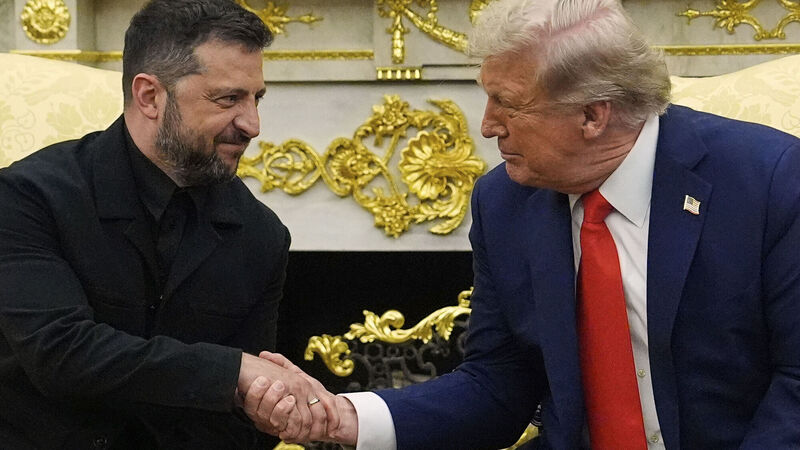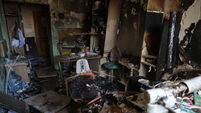Trump says ceasefire not necessary to end Ukraine war in meeting with Zelenskyy

Donald Trump meets with Volodymyr Zelenskyy in the Oval Office at the White House. Picture: AP Photo/Julia Demaree Nikhinson
US president Donald Trump appeared to rule out arranging a ceasefire as part of plans to try and end the war in Ukraine.
Mr Trump greeted Ukrainian president Volodymyr Zelenskyy outside at the White House on Monday, before a press conference in the Oval Office.













